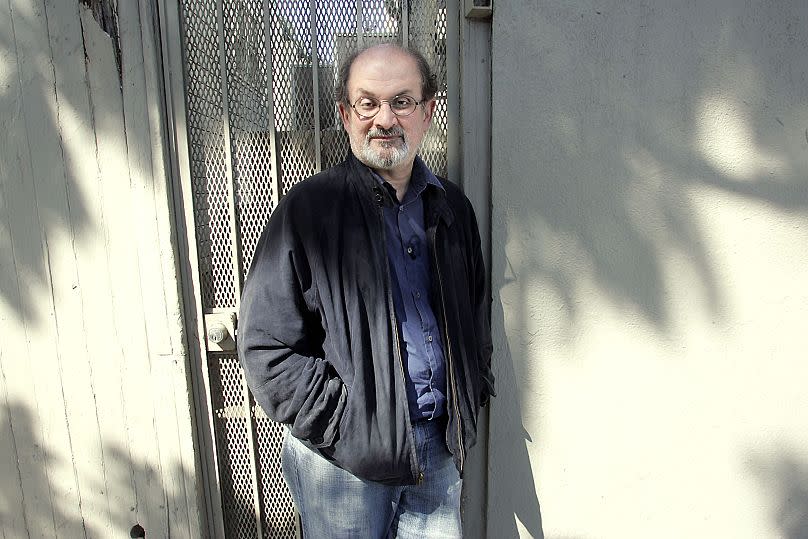'Words are the winner': Salman Rushdie speaks out in first TV interview since attack
Salman Rushdie, the esteemed British author of Indian descent, remains undeterred in his literary pursuits despite enduring a horrific attack last year.
In his first television interview since the assault, Rushdie, who lost vision in one eye and the use of one hand, expressed his resilience as a writer and discussed his forthcoming novel, "Victory City."
Penned just a month before the near-fatal incident in New York, the novel explores the dramatic rise and fall of a medieval empire in southern India, examining the perils of power and the relentless ambitions of humanity.
"I'm lucky": Salman Rushdie speaks out in first interview since New York attack
The secret lives of minstrels: New study gives insight into medieval British comedy
The enduring power of words

In an exclusive interview with RTP, Rushdie highlighted his unwavering stance in the face of hatred and animosity that have shadowed his creative journey.
The conversation took place between Rushdie and RTP journalist Ana Daniela Soares, capturing the essence of his artistic endeavors.
One of the key themes discussed during the interview was the enduring power of words and the influence wielded by writers. Rushdie eloquently conveyed this sentiment with the concluding phrase of his novel, "words are the winner."
Reflecting on history, the author remarked that while powerful figures such as kings, generals, and billionaires dominate the annals of time, it is the stories crafted about them that truly endure.
Rushdie stated: "Well, what I was trying to suggest is that history is about powerful people, history is about kings and generals and billionaires and so on. But when they’re all dead and gone what remains is the stories told about them. And that is what survives. So actually even the writers have no armies and they have no billions - except for J.K. Rowling - they have that power, which is to define the age."
Rushdie exemplified this phenomenon, citing how Leo Tolstoy's "War and Peace" has come to embody Napoleon's invasion of Russia, while Marcel Proust's writings encapsulate the Beaux-Arts period in Paris.
"It’s kind of other wonderful that writers who have very little power in their lifetime have that power in the afterlife."
Rushdie's latest novel, "Victory City," marks his literary homecoming to India. The author's roots lie in North India, although he grew up in Mumbai, a city that acts as a geographical and cultural gateway between the north and south of the country.
While his familial ties are in the north, Rushdie acknowledged that his exposure to South India had been limited. However, during his formative years in his twenties, he embarked on a journey through South India, discovering the awe-inspiring ruins of the Vijayanagara Empire in what is now known as Hampi.
Struck by the beauty and historical significance of the site, Rushdie felt compelled to explore its story further, ultimately leading to the creation of "Victory City."
The book, which is scheduled for release in November this year, has so far been described as a "tale of epic proportions".
Further into the interview with RTP Rushdie spoke about the transformative power of forgiveness, a theme that resonates deeply with him.
Sharing a personal insight, he revealed that when one forgives someone who has been cruel, it often disarms the perpetrator, leaving them uncertain of how to respond.
Check out the video above to watch the highlights of Rushdie's first TV interview since his attack.

 Yahoo Sport
Yahoo Sport 





































